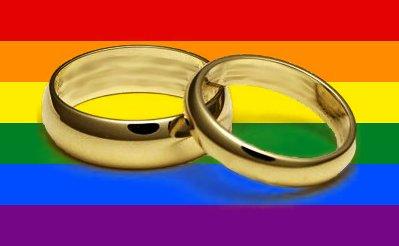Many activists have brought attention to the fact that the LGBTQ movement – or at least the public perception of it is — is too focused on marriage. It seems that the media has almost made the entire social movement synonymous with same-sex marriage, which distracts from the vast array of other problems that the LGBTQ community faces. There are plenty of other issues that this movement addresses and the media must do a better job of focusing on those fights as well.
For example, violence against trans and queer people (especially trans and queer people of color) is on the rise. Homelessness and poverty disproportionately affect the LGBTQ community for a variety of reasons including employment discrimination, lack of health care, and housing discrimination. LGBTQ youth are bullied in schools, abused at home and in public because of their sexual orientation/gender identity and face homelessness. The trans community experiences an exceptionally high amount of discrimination and abuse: nineteen percent of the trans community has had a doctor or healthcare provider refuse to treat them and forty-one percent has attempted suicide. Yet they are often excluded from mainstream LGBTQ agendas and media coverage of the LGBTQ movement.
Considering that the LGBTQ community faces so many serious issues – many of which are actually life-threatening – how did marriage equality become prioritized? Of course, LGBTQ individuals deserve equality under the law and any couple, whether heterosexual or homosexual, should be able to get married if they want — whether for the benefits or to have their relationship validated by the government or for personal reasons. But when all fifty states legalize same sex marriage, it is unlikely we will have reached full equality as a community.
It seems this prioritization of marriage reflects the interests of the most privileged within the movement being placed above others. LGBTQ individuals with healthcare, property, and trusts prioritize marriage equality because marriage is an institution that benefits these things. The voices of more marginalized people within the group are drowned out, and therefore don’t get as much of a say in what the mainstream movement focuses on. If a same sex couple lives in poverty and doesn’t have health care, property, and trusts, then the rights marriage confers related to these things aren’t relevant. And this is not to mention the fact that there are also plenty of LGBTQ folks who don’t want to get married at all for a variety of personal reasons.
Some argue that although marriage isn’t a fix-all solution, it is a necessary first step. However, it seems to me that the more logical first step would be to combat inequality at its root. It’s clear that safety, health care, and housing are more severe problems that need the most attention. After all, what good is being able to get married if your basic needs and safety are jeopardized, or if you can get fired, denied housing, or harassed for being queer even after being married?
It is important to remember that LGBTQ rights are more than just marriage. We need to constantly consciously evaluate the priorities within the social justice movements that we build to ensure that effective justice is brought to all.


